In 2018, the global logistics service provider DB Schenker with headquarter in Essen and the Croatian startup Gideon met in the semifinals of the Start.up! Germany Tour.
Having worked together in different projects since 2018, DB Schenker joins in June 2021 a $31 million Series A investment into the Croatian robotics and AI solutions company to accelerate the development and commercialization of its AI & 3D vision-based autonomous mobile robots (AMRs).
Today we are pleased to welcome Matija Kopic, CEO of Gideon Brothers, who will answer our questions about this successful cooperation.
Please describe Gideon Brothers and your (international) activities.
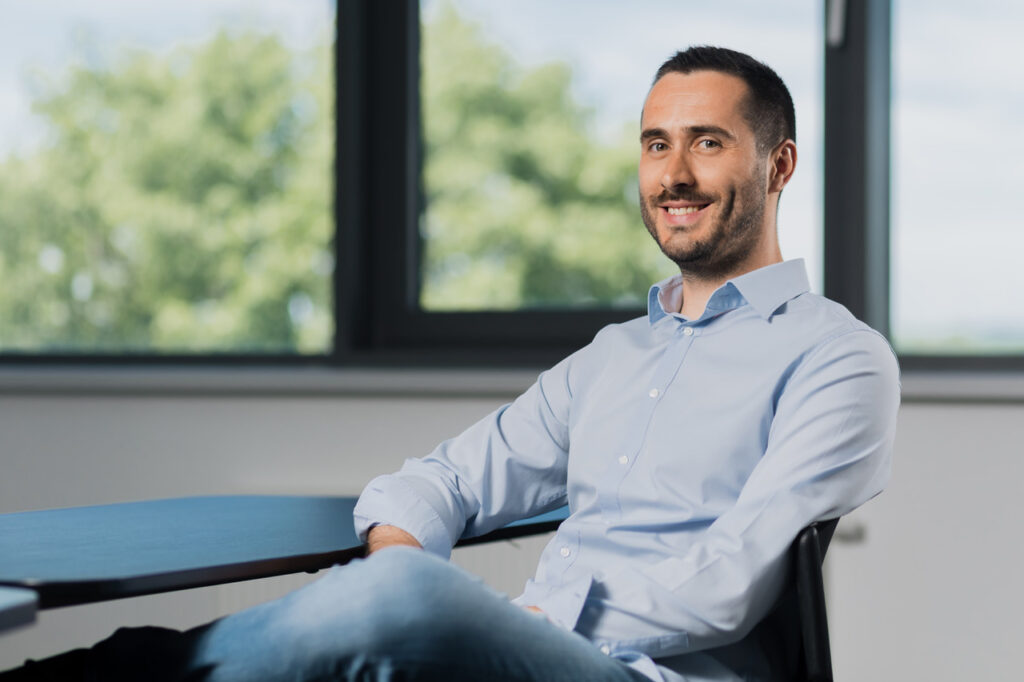
We specialize in the flexible automation of horizontal and vertical material-handling processes for logistics, warehousing, manufacturing, and retail businesses. With our advanced mobile robots and complete software solutions for autonomous indoor and outdoor operations, Gideon Brothers helps businesses solve their most complex supply chain challenges: rising customer expectations, increased product variability and logistics volumes, growing variety of distribution channels, and ultimately, labor shortage.
Currently, we have multiple projects running in the EU and the U.S., with some of the largest companies in the logistics, manufacturing and retail industry.
At DB Schenker, our autonomous mobile robots have already been put to good use, starting with our first project, launched in 2019 in Leipzig. At DB Schenker's contract logistics facility in Leipzig, our AMRs are automating tasks within the order fulfillment process, facilitating workflow and allowing employees to focus on more complex tasks.
How do you build such a start-up that will henceforth operate on international markets?
With a shared passion. We are working hard on empowering our talented team of robotics enthusiasts to dream bigger and run faster.
We are honored that we have the opportunity to work with innovation-driven customers who understand the transformative power of our technology and embrace its potential.
Our growth wouldn’t be possible without the support from our investors, a stellar group led by global leaders, including DB Schenker, the global logistics leader. They’re very excited about the coming age of flexible automation, and we’re already working on many exciting things together.
To keep supply chains running smoothly, the world needs new solutions. And new solutions can be provided only by new automation technologies providing flexible growth capacity.
We are proud that we are one of the pioneers helping bring about this transformation of material-handling automation, working on breakthrough solutions for some of the most complex supply chain challenges.
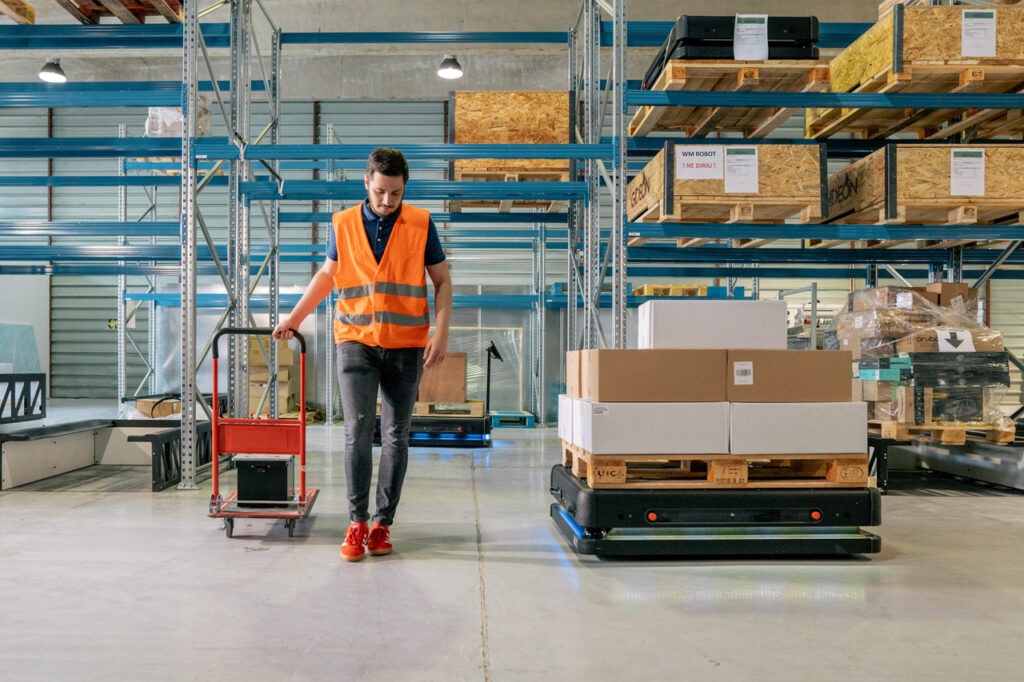
What is your passion? What are your personal goals?
Putting people first. Or rather, serving people in everything we do each day – and feeling grateful that we have the opportunity to do so. There can be no true leadership without serving.
This guiding principle of serving means, for example, respecting the balance of personal and work time. It also means being at disposal to your colleagues – talking with them, exchanging ideas, supporting them. It also means hiring smart people and listening to what they tell me.
Of course, it also means serving our customers. However, I don’t just mean providing a service or a product to another company, but working to understand and help resolve the challenges our partners – our customer’s employees face in their everyday work.
With this frame of mind – serving and gratitude – any business endeavor gains an incredible strength helping it succeed.
What has changed concretely after the investment of 32 million USD?
We are growing – increasing our amazing team and building our capacities for global growth. We are accelerating the development and commercialization of our vision-based autonomous mobile robots. Just recently, we have passed the number of one hundred full-time team members. We are expanding our Manufacturing, Sales, Marketing, and Customer Success operations across key markets of the European Union and the United States.
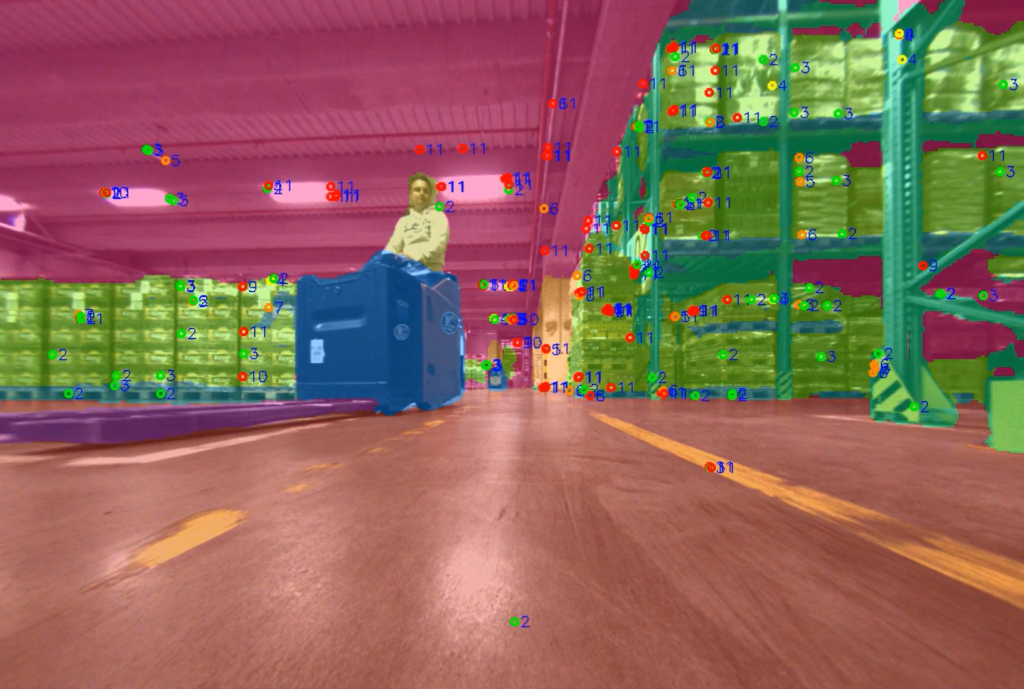
What makes the German market interesting for you?
Germany is the largest European economy. It's also the global logistics powerhouse, with 60,000 companies operating in the industry, including global leaders like DB Schenker. As the heart of the European economy and the global logistics industry, Germany is our primary market.
However, there is another inherent attraction. As a start-up company, our customers are our partners – we deepen our understanding of their challenges, and this drives our R&D. It would be difficult to find a better growth medium for a start-up than the unique mix of Mittelstand spirit, values, and knowhow that's so characteristic of the German business environment.
Could you remember the first moment when you met DB Schenker at the Start.up! Germany Tour? Was it "love at first sight"?
It was. We were a very fresh start-up at that point, barely a year old. The feedback we got from DB Schenker has given us a fantastic boost. Just imagine – this global leader, with nearly a century and a half of experience in logistics, shares our excitement about the future.
We are very grateful for the incredible support we’ve gotten from the Croatian branch of the AHK, not just during the 2018 Start.up! Germany Tour, but ever since. If it was love at first sight between DB Schenker and Gideon brothers, AHK Kroatien was the matchmaker.
What was your general experience of the Start.up! Germany Tour?
Start.up! Germany is so much more than a start-up competition. Hype potential is not in focus here. The competition doesn't strive to unearth a glitzy "next big thing" that can draw media attention.
It focuses on connecting innovators – on both sides. It's connecting start-ups developing disruptive and breakthrough technologies with innovation-driven companies that can recognize the potential of these solutions. Start-up! Germany Tour is a great opportunity to network and explore your market fit.
You haven't read the first part of DB-Schenkers and Gideon Brothers success story yet? Here is the great success story of DB Schenker and Gideon Brothers Part 1
We are pleased to welcome Stefanie Burgdorff today.
Stefanie answers our questions today and gives us exciting insights into the world of our close tour partner GTAI.
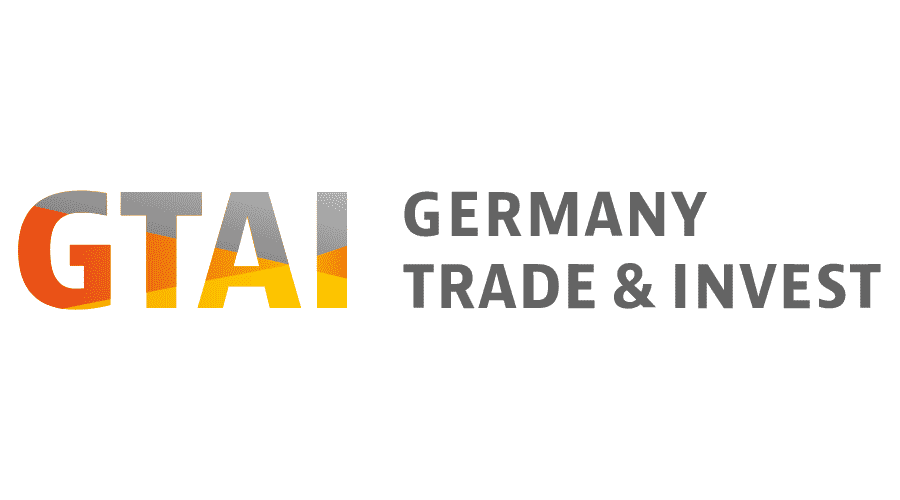
First of all, let's take a look at your Digital Hub. Could you briefly explain the concept behind it?
The Digital Hub Initiative is an initiative launched by the Federal Ministry of Economic Affairs and Energy (BMWi). There are 12 hubs located across Germany, each reflecting local industry specialization and covering sectors such as Logistics, Mobility, InsurTech, FinTech and Smart Infrastructure. The goal of the initiative is to foster innovation and the transfer of knowledge as well as technology cooperation and accelerate the digital transformation of the German economy. The Digital Hubs match start-ups with SMEs, big corporates, investors and academia.
What is the concrete benefit of Digital Hubs for Germany as an international business location?
First of all, the initiative and the hubs themselves create visibility for the German tech scene so that it can attract international start-ups, investors and corporates. That creates a pull factor beyond Germany’s large market size and great purchasing power. The concentration of start-ups and the innovative spirit in those hubs is very attractive to successful international start-ups, especially because of the link to the Germany’s famous medium-sized enterprise. A dynamic start-up ecosystem also attracts foreign investors looking for reliable, high returns. Their investment in German start-ups benefits Germany as a business location and creates technology transfer and jobs. Furthermore, the initiative and the hubs cooperate with many similar players abroad. Via these networks, we are promoting Germany as a business and digital location, thus fostering potential business creation and investment in Germany.

How far have we really come in terms of digitization in Germany in an international comparison?
Germany has brought forth many innovative digital companies in the last years. Examples like Flixbus, N26, Sennder, Celonis, Clark and Simplesurance are very successful internationally. Flixbus for instance, just acquired the biggest US bus provider Greyhound and become the market leader. According to the European-wide, DESI institute Index for digital economy and society, Germany ranks quite high in its share of fixed network broadband lines, whereas there is potential for growth in areas such as very high capacity networks and digital public services.
You are an official partner of the Start.up! Germany Tour and provide concrete program content within the three verticals Insurtech, Smart City and Logistics/Mobility. Can you give our readers an idea of how important they are for the German economy?
With its more than 3 million employees in ca. 60,000 companies, its outstanding infrastructure and global industry leaders such as DHL Group, Schenker and Kühne+Nagel, Germany is a world leader in logistics innovation, technology and services. Start-up unicorns Forto and sender are disrupting the logistics industry, and FlixMobility, Tier and Volocopter are introducing new forms of business and passenger mobility. Transporting goods and people has never seen so many innovations as today. Future innovation in this sector is the key to staying internationally competitive.
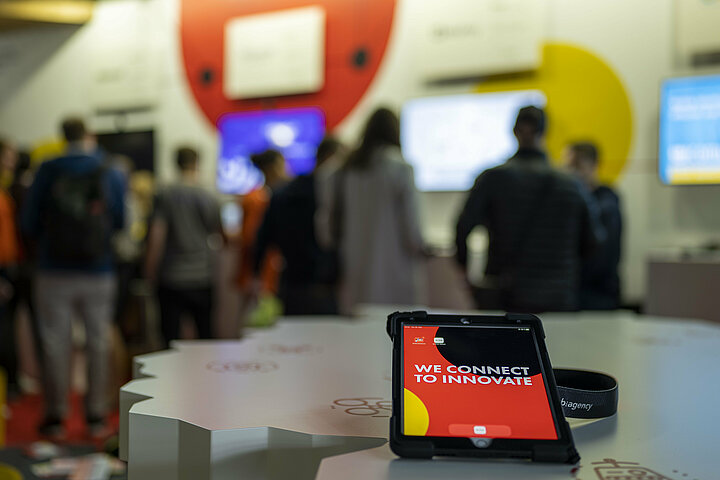
The German InsurTech market has been growing continuously and the insurance industry employs around half a million people. InsurTech is one the main pillars in financial services alongside the banking industry. Several hundred start-ups are active in the German market, offering groundbreaking innovations to end customers or businesses. That shows the fantastic market opportunities for InsurTech companies in Germany.
The same applies to smart cities. Urban centers occupy less than two percent of the planet’s surface, but provide homes to half of the world’s population and generate 70 percent of global GDP. Germany is one of the most urban countries on earth and plays an active part in shaping the cities of the future. Intelligent deployment of information and communication technologies is shaping how we life. Modern building technologies using smart devices regulate temperature, air and many other aspects of urban infrastructure.
What concrete support can the Digital Hubs provide in these three verticals?
Several of our hubs specialize in precisely these three verticals and support start-ups by linking them to key players like corporates, research institutes and VCs in the respective sectors. They also organize international workshops and events. Besides offering programs such as accelerators and innovation challenges, as members of the Digital Hub Initiative the Hubs bring start-up delegations to the leading tech conferences across the world and connect them with a variety of players from international ecosystems.
What are you particularly looking forward to on this year's tour?
We are especially looking forward to meeting all the great international start-ups in person. To a one, they have innovative business models and did a great job pitching them in the worldwide competition to qualify for the grand finale. It’s always a pleasure to meet the creative and smart minds who found the different companies. Besides that, we are naturally also looking forward to the great digital and on-site program, which will give us a chance to learn a lot as well.
Interview with Erik Wirsing, Vice President Global Innovation, DB Schenker
In 2018, the global logistics service provider DB Schenker with headquarter in Essen and the Croatian startup Gideon met in the semifinals of the Start.up! Germany Tour.
Having worked together in different projects since 2018, DB Schenker joins in June 2021 a $31 million Series A investment into the Croatian robotics and AI solutions company to accelerate the development and commercialization of its AI & 3D vision-based autonomous mobile robots (AMRs).
In this interview, Erik Wirsing tells us why the startup is so interesting for DB Schenker and how the company generally looks for exciting startups.
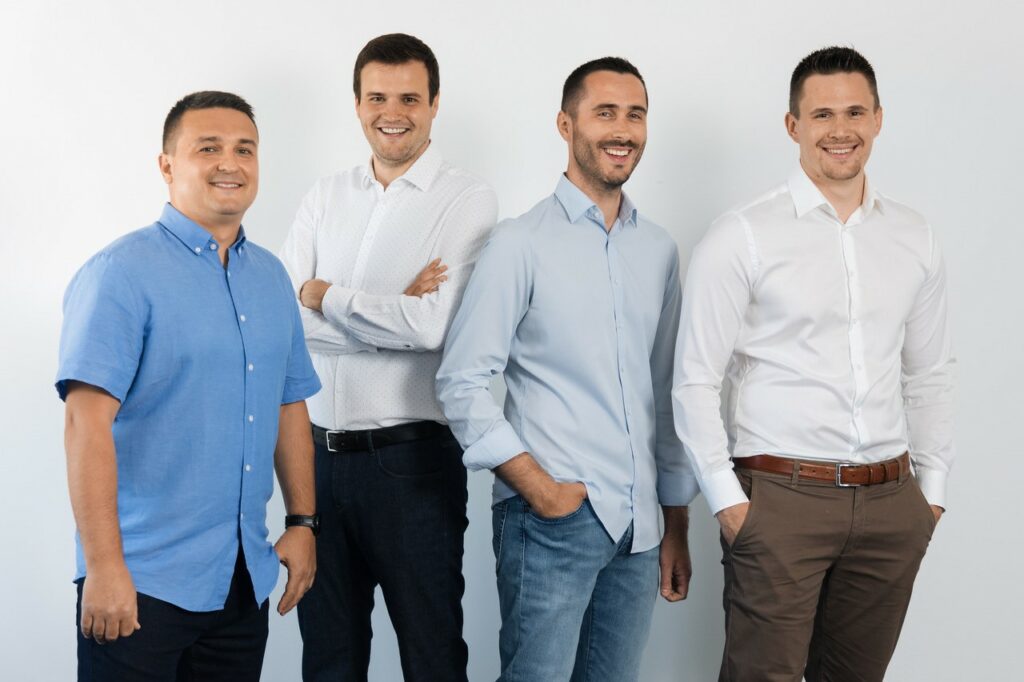
Please describe DB Schenker and your (international) startup activities.
As one of the global leading logistics providers we are present at around 2100 locations worldwide, providing around 700.000 customers with our services in Land, Air & Ocean as well as Contract Logistics.
In our Company we strive to transform and digitize our core business on the one hand and to seize the opportunities of new business models on the other hand.
Startups play a key role in digitizing and transforming the logistics industry. They are very successful in identifying emerging customer demands, tailoring individual services and rapidly developing prototypes.
With our global logistics network and open innovation approach, we embrace collaborations with dynamic startups across the planet – to challenge what we already have in practice at DB Schenker and create new business models.
Our goal is to win together - Instead of competing, we want to create valuable synergies beneficial for both DB Schenker and creative startups. By teaming up with us, startups can widen their logistics network, as well as benefit from the expertise of DB Schenker and the Deutsche Bahn group.
Describe the (industrial) technology of Gideon Brothers you are investing in here? (Gladly with concrete use cases)
Gideon Brothers specializes in flexible automation of horizontal and vertical material handling processes for logistics, warehousing, and manufacturing. DB Schenker identifies the main use cases in using the Autonomous Mobile Robots for various pallet handling operations in Contract Logistics warehouses and Land Transport terminals such as automated loading/unloading of trailers or pallet picking/putaway operations in racks.
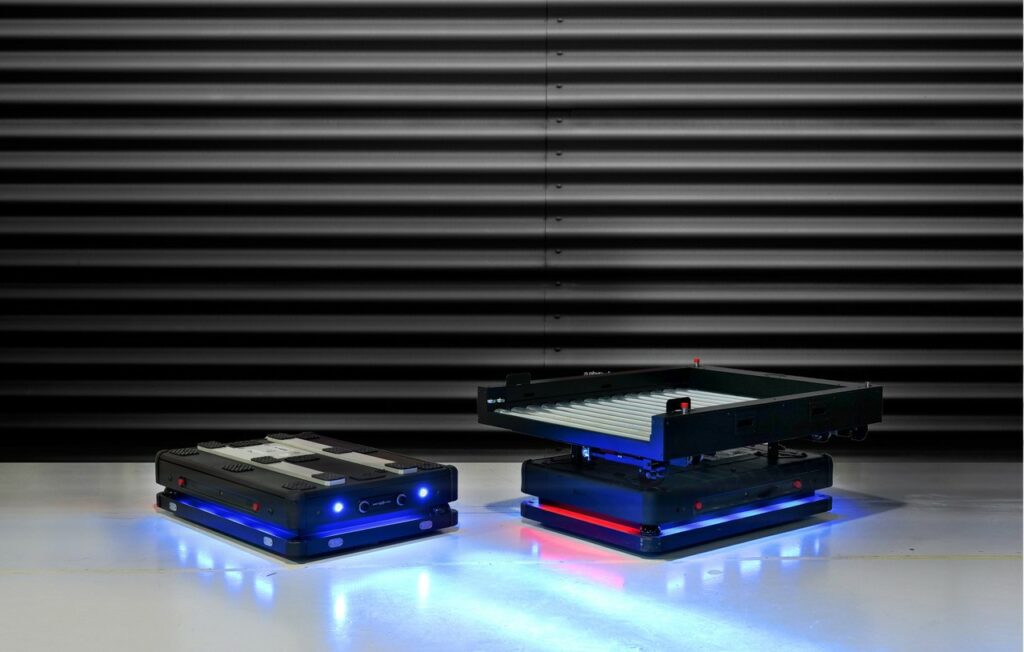
What are the opportunities and potentials for DB Schenker?
With its advanced mobile robots and complete software solutions for autonomous indoor and outdoor operations, Gideon Brothers helps businesses solve their most complex supply chain challenges. Such as rising customer expectations, increased product variability and logistics volumes, growing variety of distribution channels and ultimately labor shortage.
What was the decisive factor for you as an investor to make an investment here?
DB Schenker has the strong ambition to be the frontrunner in innovation and AMRs is one of our identified core technologies to drive this ambition. After a successful first pilot project with Gideon Brothers in one of our Contract Logistics operations and the huge potential we see in future technologies of Gideon Brothers, the decision was made to invest in this startup.
What factors lead to international startups becoming interesting for you?
Due to the fact that DB Schenker is globally present with all kind of transport modes and services in various vertical markets we have no limitations when it comes to location or the technology a startup offers. Our goal is to collaborate with startups to test and eventually scale their solution in our organization. If a startup offers an innovative and smart solution that is at least ready to be tested, we are happy to cooperate and co-create.
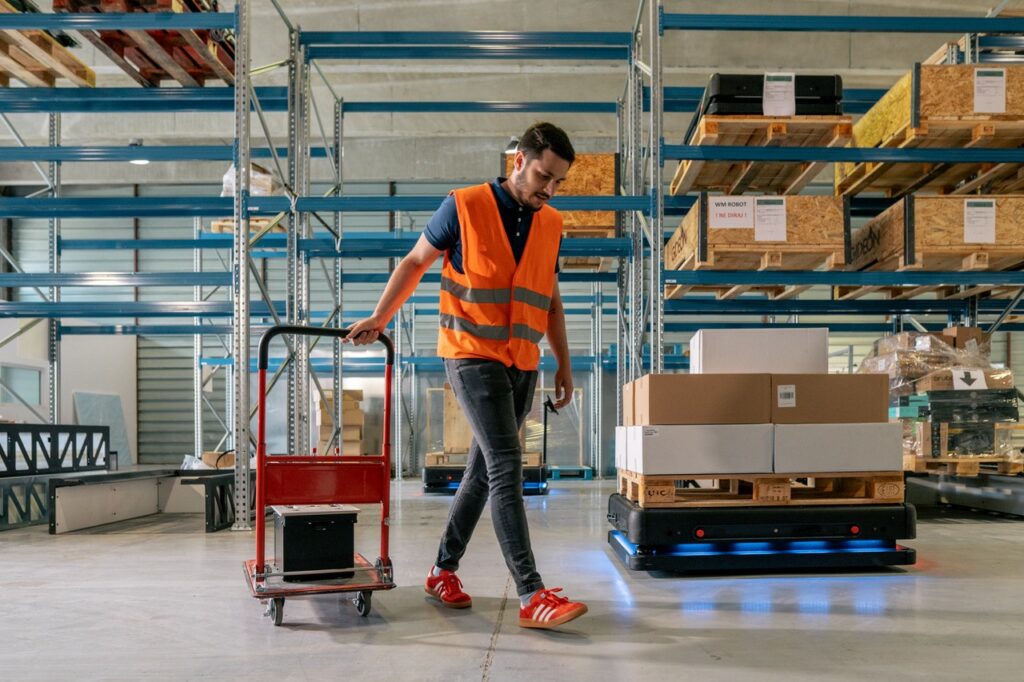
What is the best way for international startups to get in touch with you?
The best way to get in with us is via our mail address: startups@dbschenker.com
It is great if the startup can send us their pitch deck so we can check the solution with our experts in the particular field and get in touch with the startup afterwards.
What was your experience of the Start.up! Germany Tour?
We have had very good experiences with the Startup Tour in the past. It was a very good and diverse selection of startups from many different countries. All participants had a high motivation and a good spirit. There were many intercultural and value-added conversations before and after the event with the startups. Above all, looking back, the physical event was an important factor to make the right connections right on the spot. The cooperation with Gideon Brothers is of course a very special and positive outcome for us.
Click here to go to part 2 of the success story of DB schenker and Gideon Brothers.

North Rhine-Westphalia is not only Germany's most populous state, it also occupies a top economic position in the Federal Republic. Twelve of Germany's 40 largest commercial enterprises are based here, and with its strong industrial core, numerous world market leaders and a dense network of research institutions as well as technology and start-up centers, NRW is as much an innovation-driven business location as it is popular with international investors.
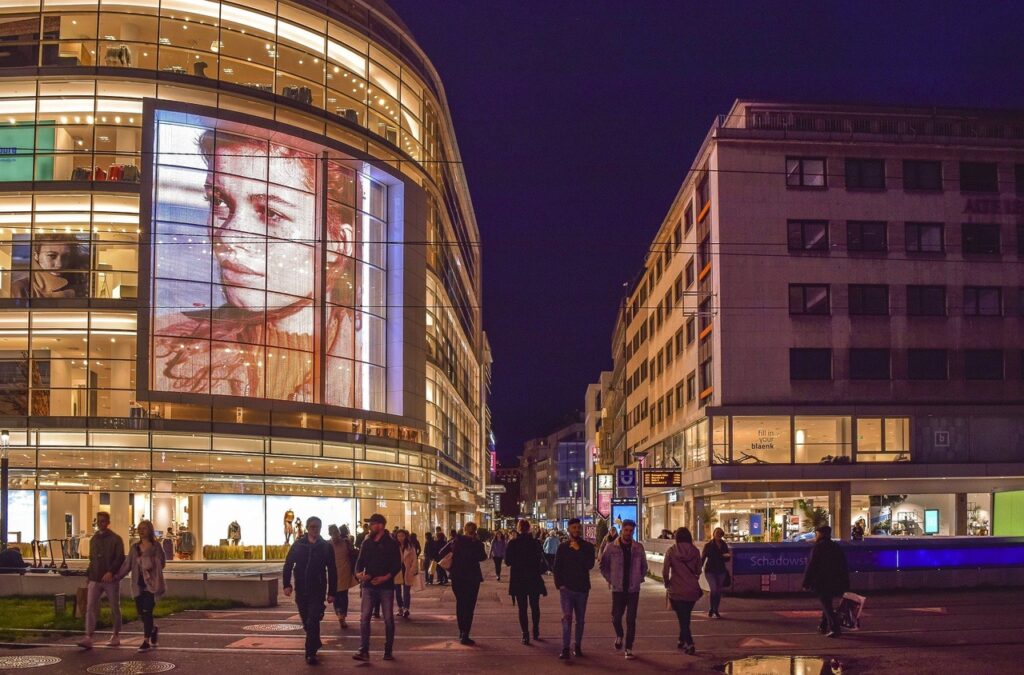
Business location with many advantages
One of the most important reasons for North Rhine-Westphalia's economic success and international competitiveness is its central geographical location in the heart of Europe. In addition, the state has a unique infrastructure as well as numerous high-quality commercial sites and properties.
What fuels the innovative power in this country is above all the close cooperation between business and research. Nowhere else in Europe are there so many scientific institutions in such a small area. These include 70 universities and universities of applied sciences, 14 institutes of the Fraunhofer-Gesellschaft, 12 Max Planck Institutes and more than 50 research facilities located at universities.
In addition, there are targeted initiatives to strengthen the innovative power in North Rhine-Westphalia, such as the competence platform for artificial intelligence "KI.NRW", the top cluster "it's OWL" on the topic of Industry 4.0, the competence center for cyber security in business "DIGITAL.SICHER.NRW" as well as innovation support for SMEs such as the "NRW.Innovationspartner" or the successful program "Mittelstand Innovativ & Digital".
NRW as a popular location for B2B start-ups
For national and international tech start-ups, North Rhine-Westphalia is one of the most sought-after locations in Europe. The structural change from an industry traditionally dominated by mining to an innovative and future-oriented industrial and service location ensures a positive development of the startup scene.
Even in Corona times, startups continued to increase in 2020, according to the NRW Startup Monitor. In the first half of the year, for example, NRW recorded 17 percent more startups than in the same period of the previous year. NRW startups are particularly successful in the B2B sector. Around 65 percent of the startups surveyed generate more than 50 percent of their sales in the business customer segment.
Important economic focal points in NRW
Since the 1960s, North Rhine-Westphalia has developed into a modern service location. More than seven million people worked in the service sector in 2020, more than twice as many as in 1970.
What has developed above all structurally is the intensive exchange and cooperation between industry and the service sector. For example, a large number of B2B service providers have established themselves in areas such as design, logistics, research and development, maintenance and waste disposal.
Industry: Steel, chemicals and electronics provide innovation and jobs
The mixture of corporations, medium-sized companies of various sizes, hidden champions, small specialized companies - all with a strong international orientation - and an active start-up scene makes NRW a unique location, incidentally one of the few in the world that still has the complete industrial value chain.
The steel industry plays a significant role in this. 38 percent of all crude steel produced in Germany is produced in NRW, and more than half of all employees in the German steel sector work here. Duisburg is home to Europe's biggest steelmaking site. In close cooperation with the steel processing sectors, the steel industry ensures innovation in many industrial sectors, such as the automotive industry, mechanical and plant engineering, steel and metal processing, and electrical engineering.
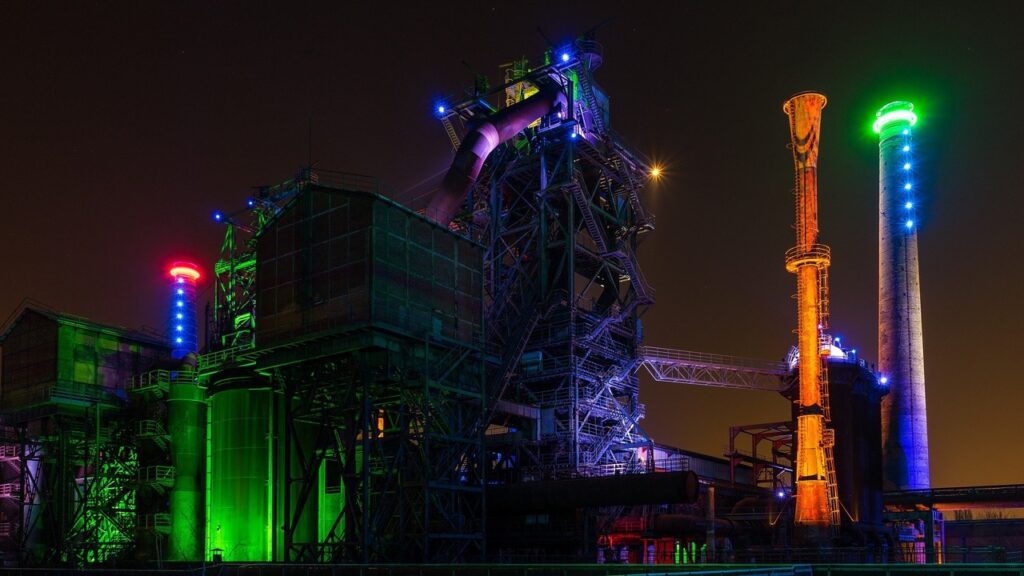
Another important sector in North Rhine-Westphalia is the chemical industry. The Rhineland in particular, with numerous world market leaders in future-oriented sectors such as digital process technology, electrical engineering, automotive or smart health, is one of the top locations worldwide. With around 93,000 employees and 42.3 billion euros in sales, NRW is the most important location for the chemical industry in Germany.
The electrical industry is another industrial focus for NRW. With around 155,000 employees, it is the third largest employer in North Rhine-Westphalia's industry. Its strengths lie primarily in the areas of automation, lighting and installation technology. Here, the sector supports innovations in future markets such as Industry 4.0, energy, mobility, healthcare and buildings.
Technology: Leading the way in new materials and IT security
In the technology sector, North Rhine-Westphalia is an innovation-driven location with a dynamic start-up scene, a strong SME sector, numerous hidden champions and DAX-listed companies.
The materials sector is a particular focus here, with over 7,000 companies and research institutes. New and lightweight materials are considered a key technology and help develop solutions to address major global challenges such as the climate crisis or resource scarcity.
Moving away from an industry based on petroleum and toward one based on renewable raw materials - this is also where biotechnology comes in. With 25 universities, six Max Planck Institutes, three Fraunhofer Institutes, three Helmholtz Institutes and six Leibniz Institutes focusing on life science, NRW is one of the most important locations for biotechnology in Germany.
NRW is equally important as a location for the field of IT security. Here, the state has undergone decisive further development over the past five years. More than 700 researchers, spread across 20 universities of applied sciences and universities, and over 400 IT security companies in NRW are working on cybersecurity.
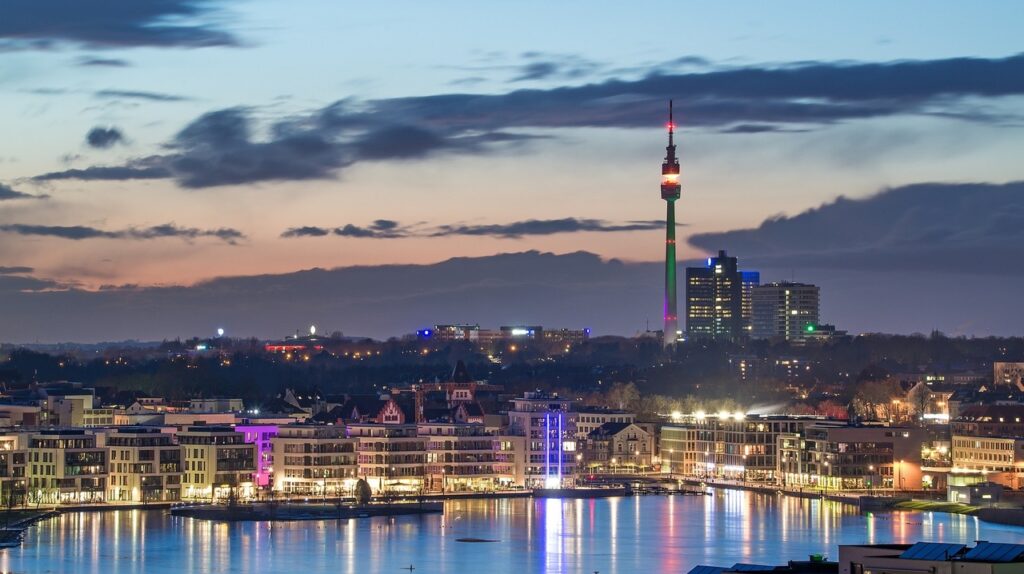
Healthcare industry: strongest sector in terms of sales in NRW
The largest sector in terms of sales and jobs in North Rhine-Westphalia is the healthcare industry. Subsectors such as medical technology and the pharmaceutical industry occupy a leading position here. Close exchange and cooperation between research and industry ensure innovative development in health care. In addition, the state plays a leading role in Germany in terms of digitization with the use of telematics applications.
With around 350 hospitals, over 4,000 pharmacies and more than 25,000 doctors' and dentists' practices, medical and nursing care forms the core sector of the healthcare industry in NRW.
Logistics: Most important growth sector and leading in Europe
Logistics is one of the most important growth sectors in North Rhine-Westphalia. For years, NRW has been considered Germany's leading logistics location. Of the 25 most important logistics companies, nine have their headquarters here, including Deutsche Post DHL, Rhenus, UPS, FedEx and Arvato.
Research in NRW also focuses intensively on the topic of logistics. Around 4,800 students are enrolled in 45 logistics degree programs in areas such as technical logistics, digital logistics, retail or production logistics. In addition, the Fraunhofer Institute for Material Flow and Logistics IML in Dortmund is the world's largest and most important research institute for logistics topics.
In addition, facilities such as "startport" in Duisburg or "Digital Hub Logistics" in Dortmund ensure a strengthening of the digital logistics ecosystem as well as better promotion and networking of start-ups and companies in the logistics sector.
First of all, please describe your role as AHK in the ecosystem and establish the link to Germany.
Thanks to our programs such as startup discovery tours both in France and Germany and European projects like Access2Europe, the French-German Chamber of Commerce and Industry is an important player in the French-German Startup ecosystem.
Startups are at the heart of innovation which is the reason why we want to create a strong link between them and established players in the industry. That’s why we organise startup pavilions at high-level tech events like Vivatech. The key factor of our success is our network of 800 French and German member companies and established players of the local startup ecosystems.
We believe that the following three elements lead to success
- Establishing strong connections between the different stakeholders through matchmaking and discovery tours in the different local markets and ecosystems
- Preparing the market entry in Germany or France with research and information and by participating in high-level events
- Participating in an active exchange of experience.
Present your startup ecosystem. What distinguishes it / What are its special features?

Events coordinator and Head of the Chamber's Young Business Leaders Club
© Stephen Zezza
France is internationally known for its startup ecosystem. Station F, the world’s largest startup campus, is based in Paris and France has witnessed success stories such as Blablacar, OVH, Doctolib, Deezer… and others! To give you a few figures and to show the recent changes, today, there are more than 28 000 startups, 114 accelerators and 159 workspaces in France – which is 10 times more than in the last decade.
The French tech ecosystem is mature and attractive and has managed to bring out a total of 26 French unicorns.
France is also the right place to get funding! France has become the leading ecosystem in the European Union in terms of fundraising, passing Germany for the 1st time. In 2021, the majority of investments went to FinTech, HealthTech and Gaming. The good results of the French tech companies are the outcome of a significant investment from the French Government in innovation, in the start-up ecosystem and in research.
Where do you see developments and potential?
Since 2018, France has been defined as a Startup Nation and offers great support for startup thanks to organisations like FrenchTech, BPI and France Digitale for example. Incubators are getting more and more international by supporting foreign startups.
If you look at the big picture, France is the 12th country in the 2020 Global innovation index (16th in 2019), 2nd European country in terms of patents issued and 4th at the global scale, with 6,2% of the patents requested to the European patent office. With the “Programme Investissement d’Avenir 4” (2021-2025), France also plans to invest 20 billion euros in higher education, research, innovation and innovative companies such as startups.
Another important point: Germany and France are not only neighbours but also long-time economic partners and represent the first market in Europe. Germany is the leading European investor in France. The 2019 Aachen Treaty has also led to the creation of a French-German research and innovation network ("virtual centre") for artificial intelligence and innovation with a subsidy programme for startups supported by the Central Innovation program for small and medium-sized companies (ZIM) and the Public Bank for Investment (BPI).
In your opinion, what makes the German market interesting for French startups?

There is especially one point I would like to emphasize: France has the technology and Germany has important data thanks to its industries. There is a perfect match between the Startup Nation and the Industry Nation which makes our two countries complementary.
It is also important for French startups to know, that the German economy is stable and robust which is attractive if you want to expand your business and find partners, investors, and clients.
How could you improve the market entry for specifically French startups?
Before entering the German market, we prepare French startups for their market entry: we help startups to get the right information about their branch and the startup ecosystem, we help them to learn to understand the French-German cultural differences, and prepare them for the German mindset in terms of business, recruitment, and communication. And thanks to our strong network, we introduce French startups to potential German customers and partners.
What were your reasons for participating in the Start.up Germany Tour?
The program is not only exciting, but it also corresponds to our values as we want to create and increase the link between startups and industry in the French-German market. By getting to know various German cities, learning more about the startup ecosystem and connecting with many stakeholders, this program matches with our DNA.
Digital location North Rhine-Westphalia: Business opportunities for international startups
North Rhine-Westphalia (NRW), Germany's most important economic region, offers young companies optimal conditions for growth. Many of them have already expanded successfully, because NRW offers plenty of room for investment and innovation, explains Felix Neugart, Managing Director of the state-owned foreign trade promotion company NRW.Global Business.
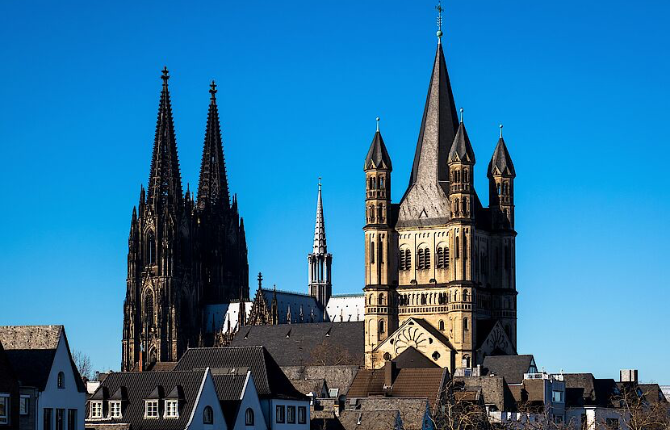
Mr. Neugart, why is North Rhine-Westphalia particularly interesting as a business location for international startups?
Felix Neugart: You have to think of NRW as the economic heart of Germany and an international hub. The region is not only the economically strongest of all the German states with a GDP share of more than 20 percent, but also the No. 1 investment location for foreign companies. Around 20,000 foreign companies have settled in our region. They benefit not only from the ideally connected location in the center of Europe, but also from an innovative, future-oriented environment. NRW plays a key role in Germany's digital transformation. We combine traditional industrial structures with a strong ICT sector. It is precisely these interfaces between classic industry and innovative IT solutions that offer the best conditions for the digitization of production and logistics processes, for example. This results in exciting prospects for international companies from the digital economy.
It sounds as if international startups in particular have opportunities in North Rhine-Westphalia. How do you assess that?
Felix Neugart: Absolutely, NRW offers excellent market opportunities for young companies with innovative technologies. For one thing, no other location in Europe can reach so many people in such a short distance: More than 160 million people live within a radius of 500 km around the state capital of Düsseldorf. On the other hand, the state's high density of industrial and trade trading companies, the state offers numerous B2B customers and cooperation partners. With more than 700,000 SMEs, it is not only home to a strong entrepreneurial middle class, but also to more than a third of the 50 companies with the highest sales in Germany. For SMEs in particular, digital transformation is naturally a top priority. Our NRW companies benefit from the know-how that international startups bring to the state.
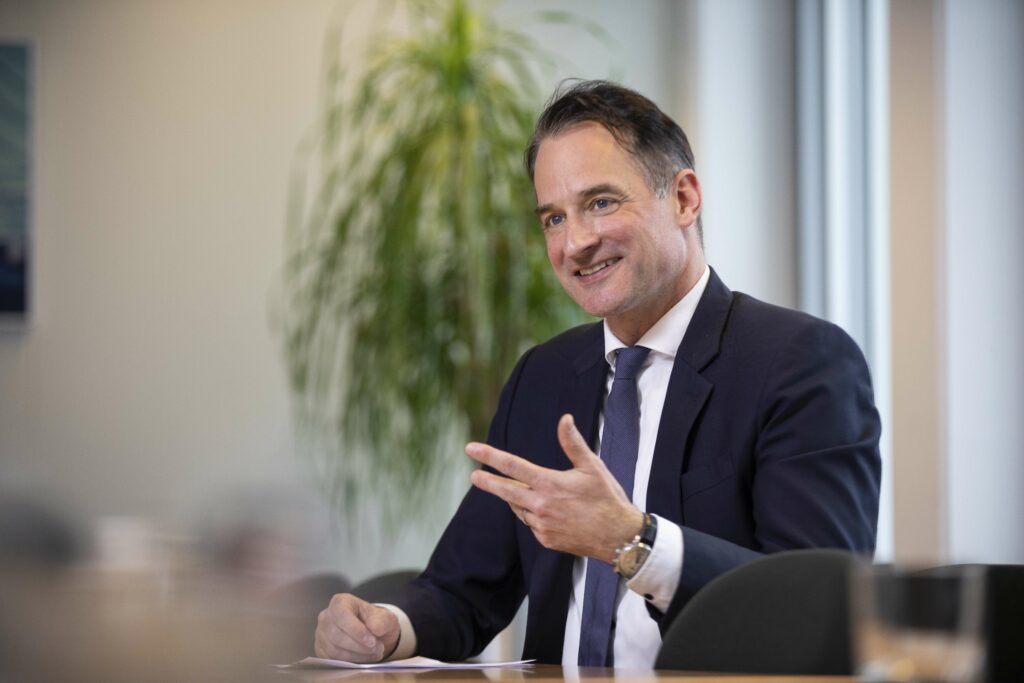
What are the general conditions for startups in North Rhine-Westphalia?
Felix Neugart: International startups are in good hands here. The state has a dynamic startup scene; by now, every fifth German startup comes from NRW. In addition to customer proximity, they particularly appreciate the considerable potential of skilled workers. 68 universities in the state educate around 770,000 students. This talent pool has been growing constantly for years - an important location advantage for startups as well. They also find a dense support network here: accelerators such as Startplatz, xdeck or Startport provide support with mentoring, workspaces and qualification measures. Five regional DWNRW hubs and players such as Digital Hub Cologne, Founders Foundation or garage33 connect startups with SMEs and large industrial companies. DigitalHub.Logistics in Dortmund and InsurLab Germany in Cologne also have a targeted industry focus here. The big players in our economy are also active themselves: Metro, T-Mobile, Vodafone, Evonik and eon, for example, run accelerator and cooperation programs to invest in innovative business models. For community building and, above all, for contact with investors, there are various matchmaking platforms such as startups.nrw or Matchmaker Ruhr. In addition, numerous events bring the scene together, such as the world's largest trade fair for digital marketing dmexco or events such as Pirate Summit, StartupCon, RuhrSummit, Digital Demo Day or Hinterland of Things. Another important contact is the startup association NRWalley, which also supports international startups in entering important networks.
How does NRW.Global Business support startups in implementing their international expansion?
Felix Neugart: NRW.Global Business supports startups with their plans and projects to locate or grow in NRW. As a state-owned company for the promotion of foreign trade, we support the companies throughout the entire process as a confidential contact for all project-related issues. Even during the analysis and planning phase, we provide them with our expertise and a proven network of contacts from business, science, politics and administration. This ensures a good start in NRW.

The Indo-German Chamber of Commerce (AHK India) participates as one among other German Chambers of Commerce Abroad at the Start.up! Germany Tour 2021 by acquiring and selecting promising startups from India to participate in this year's Start.up! Germany Tour.
In this interview we talked with Mrs. Chaitra Dole, Manager for Outbound Services from the Indo-German Chamber of Commerce (IGCC) about the startup ecosystem in India and their role as AHK in the ecosystem. As part of the business advisory team, she is the Startup Lead and is assisting Indian companies with their trade and investments into Germany.

Dear Chaitra, please describe your role as AHK in the ecosystem and establish the link to Germany.
Given our long standing experience, IGCC plays an important role in connecting the new economy with the old economy. There are several initiatives in the Indo-German start-up space, and IGCC is playing a key role in fostering cross-border start-up ecosystems. We are partners to initiatives like GINSEP and AsiaBerlin.
We are building close rapport with members and Corporates in India and Germany to understand their innovation requirements and accordingly assist them further to scout for relevant start-ups / new age technologies. We can provide market information and insights to startups, assessing market entry opportunities and accordingly establishing a value proposition. We can connect them with corporates and suitable business partners for conducting pilots and / or offering products and solutions.
Together with industry mentors and experts, we can offer guidance and coaching to startups on scaling up and developing sales strategy in the respective markets, customising and improving their pitch decks for local markets. We can also provide information on custom duties, taxation and protection of intellectual property.
Present your startup ecosystem. What distinguishes it? What are its special features?
The ecosystem was barely notable a decade ago, but has now caught up and, according to common parameters such as the number of 'unicorns', investment volume, number of startups or jobs created by startups, is in third place worldwide behind China and the USA. There are currently 12,500 start-ups in the country, out of which 1,600+ start-ups were added in 2020. The ecosystem has witnessed a y-o-y growth of 8-10% between 2015-2020. The total number of unicorns is 59 as of August 2021, there are 300+ active institutional investors and 520+ incubators and accelerators active in India.

The most mature and largest sectors include EnterpriseTech Solutions, FinTech, HealthTech and Retail & RetailTech. Besides, there is an increased use of DeepTech. The startups in India are currently still concentrated in three hubs: Bangalore, Delhi and Mumbai, but the growth of the industry is broad-based and other cities can develop into hubs in the medium to long term. The evolution of the start-up ecosystem in the past few years can be attributed to factors like government support – Start-up India campaign, availability of funding, pool of talent, increased use of internet amongst others. Also, more and more entrepreneurs who have already successfully developed their own ventures are promoting the growth of other startups with new ideas or in the form of financial support.
Where do you see developments and potential?
Verticals like Enterprise Tech, HealthTech, FinTech, EdTech and RetailTech have contributed to the growth in 2020. The pandemic has disrupted the economy, but it has also accelerated the growth in digital services and sectors like EdTech. The ecosystem offers opportunities in various other sectors for technologies like AI, Blockchain, AR/VR, Robotics, IoT and Big Data and India offers a large tech-savvy talent pool to keep up with newest technologies. Other segments such as infrastructure and logistics have been traditionally lagging in international comparison, and local startups are supporting overcoming these challenges and elevating the industries to global standards. Indian start-ups offer innovative solutions that can also be applied globally. In India, there is an unprecedented surge in demand among consumers for health and term life insurance, and the convenience of buying insurance through an app make InsurTech one of the most promising sectors in India.
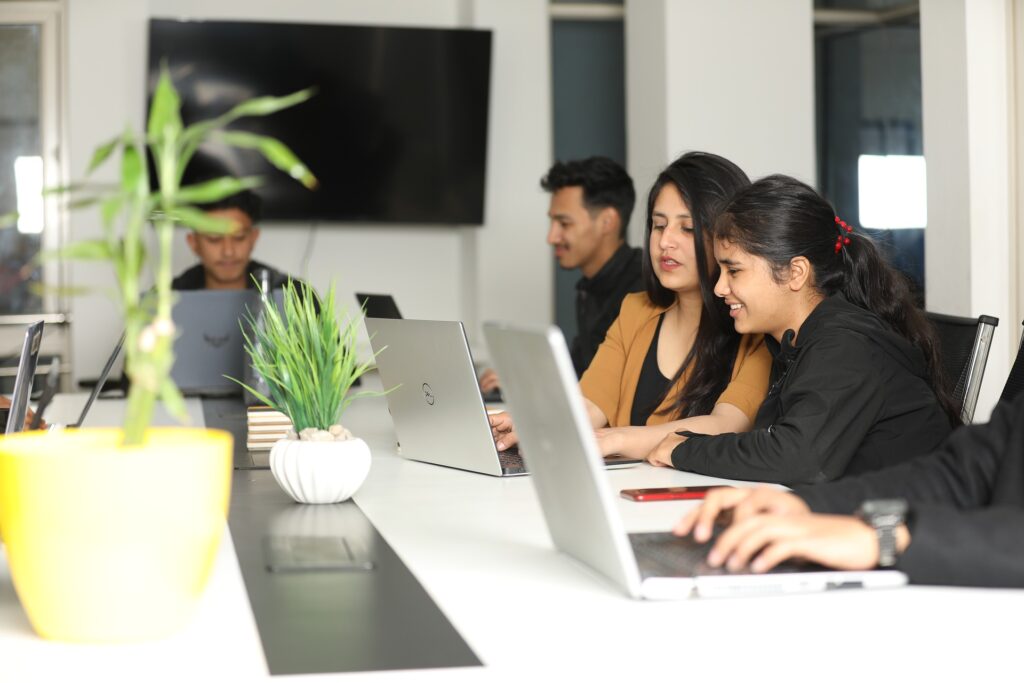
In your opinion, what makes the German market interesting for Indian startups?
Germany lies in the heart of Europe and can be a springboard for the entire continent. There is already a strong partnership between Germany and India for developing sophisticated technology and engineering. Great infrastructure, stable and robust economy and ease of doing business are some of the other factors that make German market attractive for Indian start-ups.
What were your reasons for participating in the Start.up! Germany Tour?
We had enriching and positive experiences with the previous editions of Start.up! Germany Tour. The tour gives our start-ups the opportunity to get to know various German cities, learn more about the start-up ecosystem and connecting with various stakeholders.
How could you improve the market entry for specifically Indian startups?
By establishing the network as first crucial step, by advising on product-market fit and by supporting and building connections with corporates and German SMEs.
This year, the Ministry of Economic Affairs, Innovation, Digitalization and Energy of the State of North Rhine-Westphalia is one of our main partners of the Start.up! Germany Tour 2021. We are happy to share with you a warm welcome and greetings from our Minister of Economic Affairs, Innovation, Digitalization and Energy of the State North Rhine-Westphalia Prof. Dr. Andreas Pinkwart.
"Dear Ladies and Gentlemen, dear Entrepreneurs all around the world. Entrepreneurship is of high relevance on a global scale. Innovations can emerge around the world and entrepreneurs may use global markets to sell their products or offer their services.
With the Start.up! Germany Tour we want to provide visibility and financial support to promising international new business endeavors. We offer price money worth of 15.000 Euros in total to the top three startups of this tour.
Together with the network of the national and international chambers of commerce as well as NRW.GLOBAL Business as main partner and Germany Trade and Invest, we are jointly organizing this year’s Start.up! Germany Tour. This format has been successful since 2017. Last year more than 120 startups from 30 countries participated in our virtual Start.up! Germany Tour.
Today is the kickoff of this years tour with many exciting followup events to come, such as the ruhrSUMMIT in June or the Digital Demo Day in September. We are proud that participants of close to 40 countries worldwide will be pitching their ideas in the following weeks. We look forward to inviting the top 15 startups to Germany to show you our entrepreneurial ecosystem and connect you with our key players. Here in the state of North-Rhine-Westphalia, we have a highly supportive entrepreneurial ecosystem with numerous stakeholders who coach emerging startups, such as our five digihubs or our 75 STARTERCENTER NRW.
Also we offer new enterprises, who are selecting our state as main location for their business activities, a welcoming package of up to 3.000 Euros. We want to encourage you to join our Start.up! Germany Tour, pitch your ideas and grow your businesses on an international scale.
A warm welcome, here in North-Rhine-Westphalia."
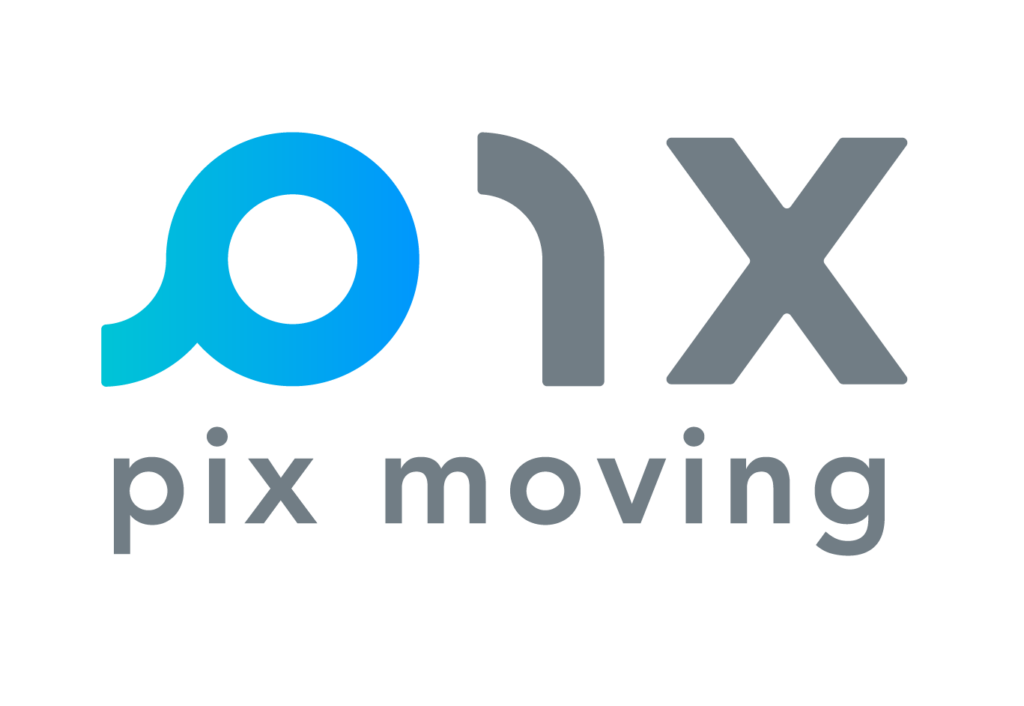
PIX Moving participated in the digital tour last year and won the international final at the Ruhr Summit. In the interview, they talk about their idea, why they participated in the Start.up! Germany Tour and how they liked it.

Dear Nancy, please introduce yourself and the startup PIX Moving.
This is Nancy Lee, the Marketing & Operation at PIX Moving. I've been with the team for more than 6 years and I'm really enjoying what we're doing. It's a pleasant group of people to work with.
About PIX Moving
PIX Moving, rebuilding the city with autonomous mobility. PIX builds autonomous driving chassis PIXBOT to integrate living, working and entertaining spaces atop, forming different moving spaces to provide on-demand services, such as unattended vending car, mobile office, self-driving hotel, moving karaoke and more applications. The moving spaces (robo-vehicles based on PIXBOT) can be used in diverse scenarios like industrial parks, public parks, scenic spots, parking lots, airports, residential communities and shopping malls etc., providing sharing mobility services for individuals.
PIX Moving envisions autonomous driving technology from the city perspective. While many other autonomous driving startups are focusing on transporting people from point A to B, PIX is thinking to bring autonomous-mobility-powered services to people. We empower city spaces with autonomous mobility so that spaces will be mobile, configurable and on-demand. Taco trucks, coffee machines, and photo booths will all become autonomously routed and freely moving parts of cities. Right now PIXBOT has earned dozens of customers, covering industries from smart retailing, logistics and delivery to security patrol and more, which are all empowered with autonomous mobility by developing self-driving applications based on PIX platforms. PIXBOT has also been applied in university education and institutes R&D, expanding global pilots around the world.
Why did you participate at Start.up! Germany Tour?
It was really a fabulous program. The reasons mainly lied in three aspects
- We've learnt about the business environment, startup strategies, local policy, marketing roadmap and all kinds of information about Germany. Our company is at a fast-growth stage and we're shipping globally. We have the plan to expand to the European area, and Germany, with its technology vibes and startup incentives, can be a great entry point. This event offered an in-depth look into Germany and Europe;
- Since PIX is intersecting the fields of robotics, AI, smart manufacturing, autonomous driving etc., we are more than happy to connect with the potential customers and partners around the globe. Startup Germany Tour has provided a lot of exposure opportunities so that we can connect with the different startups, enterprises across the industries;
- Learn and grow, getting inspiration. We're a very open team and such event can inspire mutual growth among the participants
How did you hear about the tour?
We were introduced by an organization in China who recommended us to apply as we're in the smart mobility and digital manufacturing sectors.
What is your interest in the German market?
We hope to expand to Europe and maybe set up an R&D center in the European region. In Germany, we can consider such possibilities. On the other hand, we also hope to establish collaboration/partnership with local companies in Germany, regarding autonomous driving, next-gen manufacturing and smart mobility.
How did you like the tour? What was your highlight?
We've really enjoyed it. From a personal perspective, I've learnt a lot from the fellow participants and it was quite inspiring. The sessions and workshops provided deep insights into the industries; From a company perspective, we've gained many connections with potential business partners and users. The business environment in Germany is great and we can start evaluating the incentive policies to see the possibilities of landing locally.
You won the pitch final at the RuhrSummit. Will you redeem your prize and join the next physical tour?
YES, that's FOR SURE. We're definitely going to attend the physical tour next year and we're so looking forward to it. Many thanks again for providing us this opportunity

The startup Litium from Iran took part in our digital tour last year. In the interview, they talk about their experiences with the Start.up! Germany Tour, their expectations of the German market and the startup scene in Iran.
What was your experience of the Start.up! Germany Tour 2020?
The Start.up! Germany Tour 2020 was the first experience for our one-year Startup “Litium”. For that, I thank the German-Iranian Chamber of Industry and Commerce (AHK Iran) for giving us this opportunity. However, what made the Start.up! Germany Tour so unique was its clear structure. It was clear which corporates were participating and the “matchmaking” to this event was brilliant. Well-known companies from Germany, CICs (IHK) and InsurLab were represented at this “tour”, which created a very nice ecosystem and led us receiving several cooperation offers. The possibility to have conversations with other participants of this event, both as a person and as a company was quite attractive and in this way we received a cooperation offer from one of the experienced participants of this event in the field of “artificial intelligence”. The Start.up! Germany Tour helped us to get a different view about the German market. Previously, we thought that the market of this country is inaccessible for us. After the "tour", however, we realized that Germany might be one of our target countries if we want to move Litium abroad. Through this event, we were able to get a closer look into the international market and we were provided with many opportunities, hence I believe that our presence at Start.up! Germany Tour 2021 will be even more productive.

How did the collaboration with InsurLab come about?
In the Big Pitch phase, we were selected by the jury, and so our path led us to collaboration with InsurLab Germany and to contact with other startups. As one of the twelve hubs in Germany, InsurLab Germany asked us for more detailed information about our idea and work. Both sides worked out more detailed plans for the cooperation. The proposal that we ultimately received from InsurLab Germany was very attractive to us because we hardly believed we would receive such an offer after just one year. Such a proposal is very interesting for a startup like ours, which does not have a final product yet and is only working on an idea. Undoubtedly, our unique idea played an important role in our selection. This boosts our self-confidence. The publication of the news about our participation at the Start.up! Germany Tour in the business magazine of the German-Iranian Chamber of Industry and Commerce (Einblick) and social networks were also quite effective. After these reports, more foreign investors have been contacting us since then.
In the Big Pitch phase, we were selected by the jury, and so our path led us to collaboration with InsurLab Germany and to contact with other startups. As one of the twelve hubs in Germany, InsurLab Germany asked us for more detailed information about our idea and work. Both sides worked out more detailed plans for the cooperation. The proposal that we ultimately received from InsurLab Germany was very attractive to us because we hardly believed we would receive such an offer after just one year. Such a proposal is very interesting for a startup like ours, which does not have a final product yet and is only working on an idea. Undoubtedly, our unique idea played an important role in our selection. This boosts our self-confidence. The publication of the news about our participation at the Start.up! Germany Tour in the business magazine of the German-Iranian Chamber of Industry and Commerce (Einblick) and social networks were also quite effective. After these reports, more foreign investors have been contacting us since then.

What does motivate and interests an Iranian startup about the German market?
What does differentiate Germany from other countries is its stable economy. In addition to internal challenges that a startup is often facing, external challenges are also affecting its activities. And it is important to be able to plan for these external factors as much as possible, which can only be possible if the economy is stable. Therefore, this country is attractive to us. The economic stability of a country leads to stable behavior on the part of the companies based there and its predictability. In addition, Germany is in a good position on the international market. There are major insurance companies in this country, such as Munich Re, which often occupies first or second place in the world rankings. This is important because the collaboration with such companies can be a driving force for smaller companies and give them global credibility. Thirdly, Germany is attractive for startups because of the specialized startup hubs. This is a great advantage as you can easily communicate with them by identifying the focus of each of them and getting the right guidance. In my opinion, these three points play a very important role and they make Germany quite interesting for an Iranian startup. To enter the German market, we are facing a big challenge. Germany, as well as other countries, does not provide us with a long-term plan for our activities. This is a bit risky for us, because you can't establish and realize a startup in a few months.
How do you evaluate the Iranian startup ecosystem?
Establishing a startup in Iran is quite easy and it doesn't require a lot of seed capital. Annually, domestic free events are held, where you can meet influential people, get important tips and enter the Iranian startup ecosystem. Building a network in the Iranian ecosystem is very fast and strong. But the problem starts when you need financial support along the way. When it comes to financial support, Iranian startup accelerators become slow. This can even lead to the dissolution of a startup.
